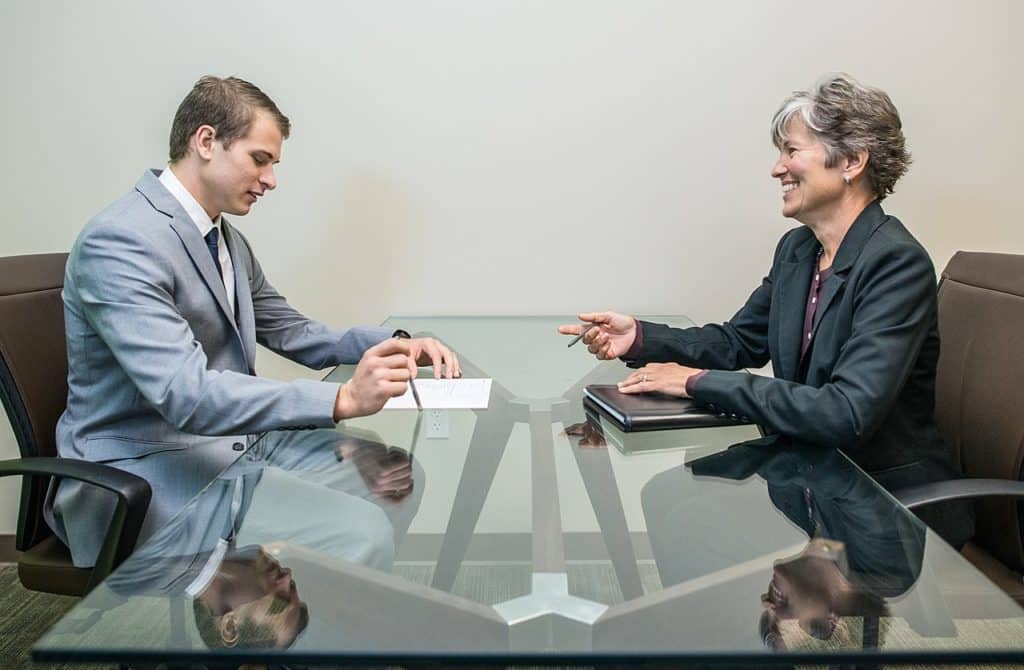Navigating a job interview successfully can be the defining difference between kick-starting a flourishing career and missing out on an opportunity. This comprehensive guide provides a detailed breakdown of strategies and best practices, from preparation to post-interview follow-up, designed to help you shine throughout the process and achieve the ultimate goal – landing the job.
Preparing for the Ideal Outcome of a Job Interview
1. Research the Company and Role
The first step in preparing for a job interview is to gain a deep understanding of the company and the role for which you’re interviewing. This step reflects your enthusiasm and preparedness to the interviewer and gives you the insight to confidently answer company and role-specific questions.
Perform an in-depth study of the company’s history, mission, and values to understand its culture and business strategies. Look up recent news articles or press releases about the company to be informed about its latest developments or projects.
Thoroughly review the job description to understand what the role entails and what the company seeks in a potential candidate. Make a list of the key skills and qualifications required, and match them with your own experience and abilities. This will help you identify your strengths and gaps, and how to present these during the live or video interview.

2. Understand the Interview Format
Knowing the interview format is a critical part of preparation. Different formats require different approaches, so understanding what to expect can help you prepare appropriately and manage any related anxieties.
Is it a one-on-one, panel, group, or remote interview? The style of your answers and your interaction may vary depending on the format. For instance, for remote interviews, you must ensure a strong internet connection, appropriate background, and proper lighting to present yourself professionally.
3. Practice Common Interview Questions
To deliver articulate and confident responses during your interview, practice answering common interview questions. This preparation helps you to convey your thoughts smoothly, showcasing your qualifications and experience effectively.
Prepare answers for general questions like “Tell me about yourself” or “Why should we hire you?”, as well as role-specific ones that might be related to the job you’re applying for. Remember to structure your responses concisely, emphasizing your achievements and skills. For behavioral questions, use the STAR method (Situation, Task, Action, Result) to illustrate your past experiences effectively.
4. Prepare Your Own Questions
An interview is not just about the interviewer asking questions. It’s also a chance for you to inquire about the company, the team, and the role. This shows your genuine interest in the position and provides additional insights that can help you decide if the role is a good fit for you.
Prepare thoughtful questions about the company culture, the team you’ll be working with, the challenges and expectations of the role, or any recent company news or projects that intrigued you. This not only helps you gather more information but also shows your proactive approach and enthusiasm.
5. Dress Appropriately
The way you present yourself visually makes a significant impact. Dressing appropriately for an interview is a crucial step in making a strong first impression and showing respect for the company and its culture.
If you’re unsure about the dress code, err on the side of caution and dress more formally. For companies with a relaxed culture, business casual attire could be suitable. When in doubt, remember that it’s better to be slightly overdressed than underdressed.
During the Interview
1. Make a Good First Impression
Your first impression plays a vital role in how the interviewer perceives you. It sets the tone for the rest of the interview and could have a lasting impact.
To make a positive first impression, arrive on time, maintain good eye contact, offer a firm handshake (if culturally appropriate), and greet the interviewer with a warm, confident smile. Being respectful, attentive, and professional from the get-go can significantly influence the outcome of your interview.
2. Show Enthusiasm and Confidence
Your attitude and enthusiasm are as important as your skills and experience. They can influence the interviewer’s perception of your fit for the role and the company.
Display your passion for the role, your eagerness to contribute, and your confidence in your ability to handle the tasks involved. Be positive about the opportunity and articulate why you’re excited to join the company.
3. Be Attentive and Engage in Active Listening
Active listening is crucial during an interview. It shows respect for the interviewer, helps ensure your responses align with the questions asked, and enables you to ask meaningful follow-up questions.
Ensure that you understand each question before responding, and don’t hesitate to ask for clarification if necessary. Reflecting on the interviewer’s words before answering can show you’re fully engaged and thoughtful in your responses.

4. Use Positive Body Language
Non-verbal cues are powerful communicators. Your body language can say a lot about your feelings, attitudes, and level of confidence.
Maintain an open and attentive posture, avoid crossing your arms, and use natural gestures while speaking. Make sure your facial expressions align with what you’re saying, and maintain eye contact to show your attention and interest.
After the Interview
The interview process doesn’t end when the meeting does. How you follow up after an interview can affect the interviewer’s perception of you and potentially influence their decision.
Send a thank-you note or email expressing your appreciation for the interviewer’s time, reaffirming your interest in the role, and summarizing why you believe you’re a good fit. This leaves a positive impression and shows your professionalism and courtesy.
Crafting a Kick-ass Introduction
When asked to introduce yourself, you want to create a compelling narrative that highlights your qualifications, aligns with the role, and engages the interviewer.
Begin with your current professional role and responsibilities. Next, mention significant achievements, skills, or experiences that have shaped your career, especially those relevant to the job at hand. Finally, tie your introduction together by discussing your career aspirations, making sure to align them with the role and the company you’re interviewing for.
Conclusion
Job interviews can be pivotal turning points in our professional journey. They offer a unique opportunity to showcase our qualifications, personality, and potential fit within a company. From researching the company and role, preparing for different interview formats, and practicing common interview questions, to making a positive first impression, showing enthusiasm, and following up professionally, every step is essential in this process.
By taking a strategic and thoughtful approach to interviews, we can navigate them confidently and effectively, enhancing our chances of achieving the ultimate goal – securing the job offer and advancing our career.
